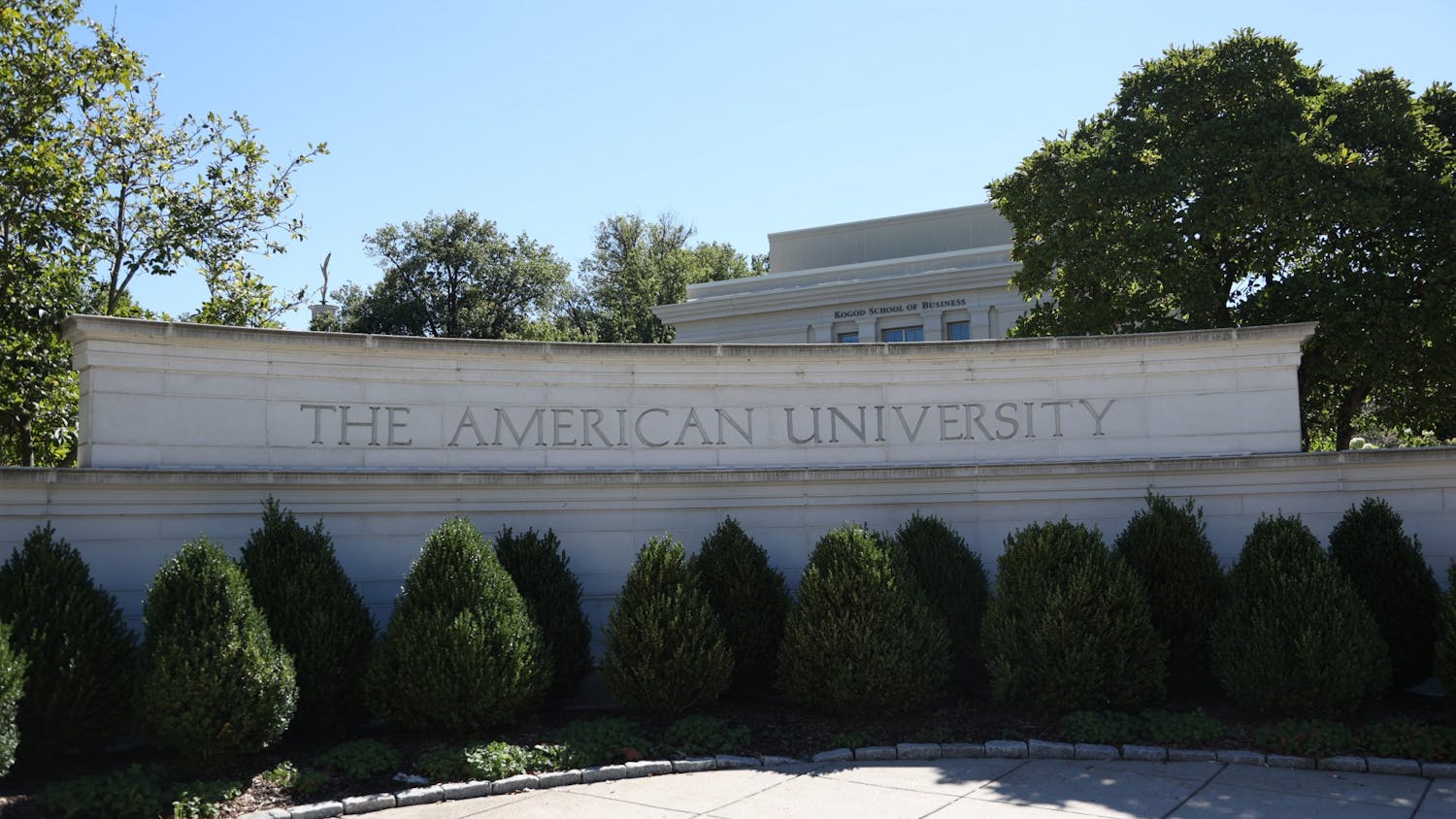Twelve Jordanian students participated in a round-table discussion at American University on Tuesday during their three-week tour of U.S. universities.
The students are members of "King Abdullah's Young Leader Excellence," a competitive program designed by Abdullah, ruler of Jordan. In cooperation with the U.S. Embassy in Amman, Jordan, the students are on a three-week tour of U.S. universities and institutions, including visits to the University of Colorado, the University of North Carolina-Chapel Hill, Georgetown University and AU.
"The program objective is to get students to learn, hands-on, how the American government works," said one of the program translators. "The universities [in Jordan] are all government-owned .... There are no student unions or organizations [like there are in the U.S.] .... We want them to get to know the real America, instead of getting to know it through the media."
Students often travel with Abdullah to conferences with foreign leaders, and are asked to advise the Jordanian government on youth programs.
The students visited Congress and the State Department in August before leaving for Austin, Texas and Denver. Jordanian students met with more than a dozen AU students, including members from the student government, the Muslim Student Association and the College Republicans.
AU and Jordanian students said they were interested in each other's cultures.
"I want to know everything [about AU's student government]," joked Farah Zaid Al Hamouri, a management information systems major at the University of Jordan in Amman.
The students were interested in AU student involvement in the upcoming national election, and all participants were interested in the perceptions made in both countries about the Iraq war.
"We don't consider Americans bad because of what Bush did," said Dina Munther Shar'e, a fine arts and design major at Yamouk University in Irbia.
Even though it is sometimes difficult to reject prejudice, "[Jordanians] realize [Americans] are separate from the government," said Rawan Faheem Al-Mdanat, an English language and literature major at Mu'tah University in Karak.
"People in the Middle East do not know the American people, they know the American army," Al Hamouri added.
Jordanian and American students agreed that the media often distort perceptions, and that there are prejudices between both Arabs and Americans.
"It's clear in the way we've been treated," said Noura Yousef Abu Hmaidan, a graphic design major at Petra University in Amman. "Americans are told that Arabs are not all terrorists, but they still the need to 'take precautions.' .... Even if they don't say it, you can feel it, see it, in the way that they act."
Jordanna Hasan El Nader, an English language major at Yarmouk University, said that even her Cheetos bag was open and searched in the airport.
However, for the most part, Jordanian students said they were pleased with the way they were treated in the United States.
"People smile at you, no matter who you are," said El Nader. "[The United States has] friendly, lovely people. I'll miss everything here."
However, some said they hope to leave something behind.
"I hope we change the ideas of Arabs and Muslims," said Mahmoud Ali Al-Hailat, an economics major at Yarmouk.
Jordanian students said they want Americans to look beyond what the media portrays.
"We hope that Americans can see that the people in the Middle East are also human," Al Hamouri said.
For many students, visiting the U.S. was an eye-opening experience.
"I met, for the first time in my life, a Jewish family," said Al-Hailat. "We talked about Israeli and Palestinians, and we respected each other. I think that if we respect each other, we will get to a solution."
When asked what hopes and aspirations they had for the Middle East, students unanimously replied, "Peace."
The majority of Jordanian students felt that the Bush administration has to "finish what it started," but it must "think of a better idea than guns and bombs," said Al-Hailat. "It is not easy to move from a bureaucratic society to a democratic society."
Other students expressed different opinions about the American occupation in the Middle East.
"The first step [to peace] is that the American government should leave the countries," said Abu Hmaidan. "Just because it's the richest country in the world doesn't give it the right to 'help' countries that don't ask for help," she said. She added that countries should learn to compromise. "Every country has its different culture and point of view. You don't have to start to believe what [the other country] believes, but you need to learn to understand one another [in order to achieve peace]."
Anna Gering, a sophomore in the School of International Service and in the College of Arts and Science, said the round-table discussion was a "good opportunity to get to know people from the Middle East, to know that they are humans, too, not terrorists," she said. "The American media engenders fear ... It was awesome to hear different perspectives on the war in Iraq."
Student Confederation President Polson Kenneth agreed.
"[The discussion] was great," he said. "We had a lot of fun. Sure, we talked about politics, but we also talked about what they like to do, going out to clubs. They loved the pandas," he said, laughing.
Fanta Aw, director of International Student Services, hopes to have more exchange programs to bring students to the States.
"We are so fortunate on this campus to bring opportunities like this to the table," she said. "If we can't do it here, I don't know where else we can do it"




